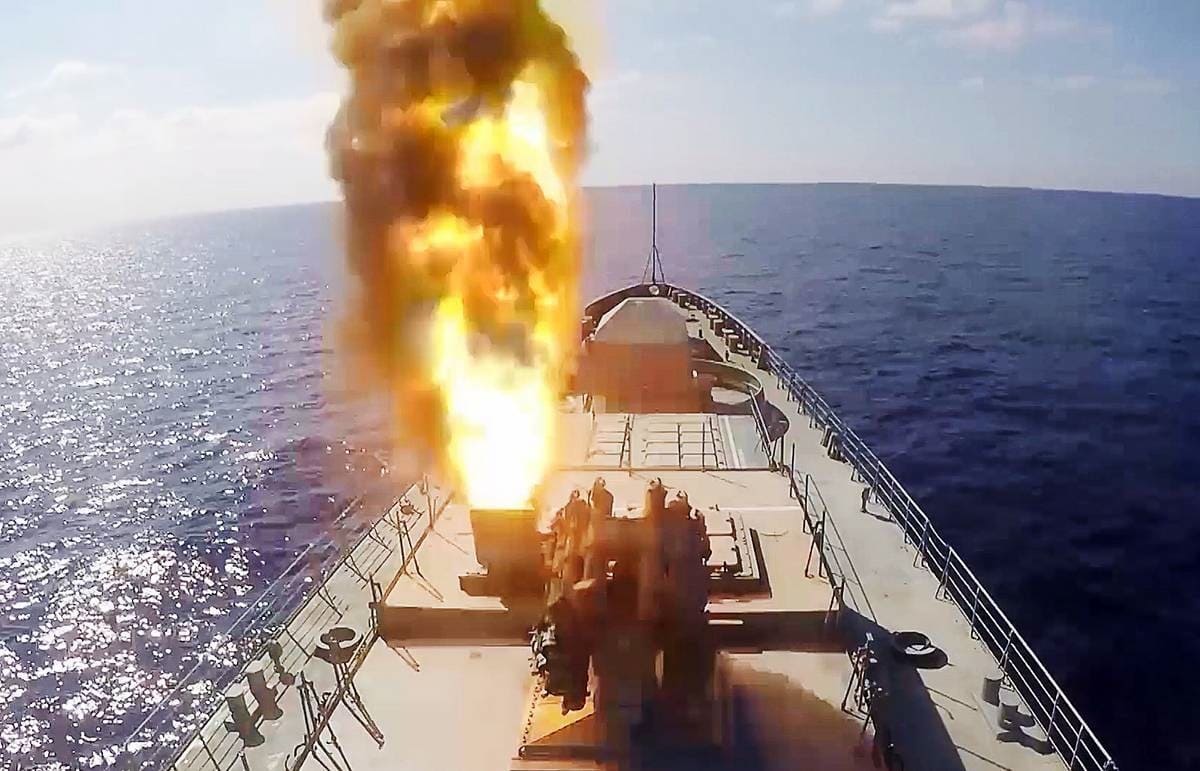Major doings in the Black Sea and Eastern Mediterranean these past couple of weeks. At present naval forces representing thirty-two countries are carrying out Exercise Sea Breeze 2021, an annual event co-hosted by the United States and Ukraine. “This year’s iteration has the largest number of participating nations in the exercise’s history, with 32 countries from six continents providing 5,000 troops, 32 ships, 40 aircraft, and 18 special operations and dive teams scheduled to participate,” according to a U.S. Navy press release.
Meanwhile, the Russian Navy and Air Force are flexing their muscles not just in the Black Sea basin but in the Mediterranean Sea, where the British aircraft carrier HMS Queen Elizabeth and its air wing are conducting combat operations against targets in Syria before proceeding to the Red Sea, Indian Ocean, and Western Pacific. Armed Russian aircraft are keeping a close eye on the British task force.
How to make sense of this flurry of air and sea activity?
Four quick points. First, one way to interpret naval and military exercises is as statements of power and resolve aimed at shaping opinion among various audiences, foreign and domestic. By demonstrating prowess in peacetime a competitor tries to portray itself as the likely victor in an actual trial of arms. Rival competitors make statements of their own. The process is something like an armed debate, made up of statements, counterarguments, and rebuttals. Target audiences judge the debate’s outcome. Whoever a critical mass of observers believes would win a wartime encounter “wins” a peacetime encounter such as the one currently underway in the Black Sea and the Mediterranean. These observers could be expert in martial affairs or not, but their verdict counts all the same.
Hence the need for stagecraft as well as operational excellence during peacetime maneuvers.
By assembling forces from thirty-two countries in the Black Sea and showing those forces can fight together, allies make a statement about their combined power. If Moscow believes they will stand together in wartime and have enough military might to fulfill their goals—in this case upholding Ukrainian sovereignty—then Russia will be deterred. At the same time allies, partners, and friends will take heart and feel confident enough to rebuke Russian demands.
Cow your opponents and hearten your friends in peacetime and you may never have to fight.
Second, deception has featured prominently in recent run-ins between Russian and Western armed forces. Most notably, on two occasions someone—probably in Russia—spoofed automatic ship tracking data. On June 18 data seemed to show that the guided-missile destroyer HMS Defender had approached to within two nautical miles of the Russian naval base at Sevastopol. (Moscow went on to claim that Russian forces had fired warning shots and dropped bombs to expel Defender from the Crimean territorial sea when the vessel later skirted—lawfully—through those waters. Royal Navy spokesmen hotly disputed the Russian account.) Just this week tracking data seemed to show that the destroyer USS Ross and a Ukrainian patrol craft had approached to within five miles of the Crimean Peninsula. Video footage proved that Defender and Ross were moored in the Ukrainian seaport of Odessa at the times when they supposedly ventured deep into the territorial sea adjoining Crimea.
So why bother faking automatic identification system data? Probably just to make mischief for Western navies. Deception has been a cornerstone of military operations at least since Sun Tzu wrote his treatise on The Art of War way back in ancient China. At its most basic, deception means concealing something true and displaying something false in order to fool your adversary and gain a tactical or strategic advantage. Russians have put a premium on deception at least since Soviet days, calling it maskirovka. Cellphones, social media, and on and on now allow opponents to reach directly into U.S. or allied military units to sow confusion or dissension—much as online predators constantly try to trick the unwary with spam calls or email.
Third, freedom-of-navigation operations are a poor vehicle for protesting Russian claims to dry earth in Crimea. Royal Navy officialdom reported that HMS Defender had crossed through the Ukrainian—not Russian—territorial sea. By and large, the international community rejects the Russian occupation of Crimea. Fine. But the law of the sea is agnostic about who rules on land. Freedom-of-navigation cruises are a good way to contest excessive claims to maritime space. In themselves, they do little to debunk Russian claims to sovereignty over land.
And lastly, to scope back out to the strategic level, the back-and-forth demonstrations in the Black Sea and Mediterranean are just the latest phase in strategic competition around the Eurasian periphery, Nicholas Spykman’s “girdle of marginal seas.” To exert influence in the Eurasian “rimlands,” coastal zones separating the sea from the deep continental interior, a maritime hegemon—in this case the United States and its allies—must be able to take control of marginal expanses. Otherwise, naval forces can’t get to the rimlands to project power. Russia and China would like to deny allied forces that access, and thus undo American strategy.
How Western navies handle Russian challenges to nautical access could set a precedent—good or bad—for other peripheral seas, much as how navies handle Chinese challenges in the South China Sea or East China Sea could set a precedent in the Black Sea, Baltic Sea, or Arctic Ocean.
It’s tempting to dismiss the daily news from the region as tit-for-tat posturing. But its strategic and political import could hardly be greater.
James Holmes is J. C. Wylie Chair of Maritime Strategy at the Naval War College and a nonresident fellow at the University of Georgia School of Public and International Affairs. The views voiced here are his alone.

